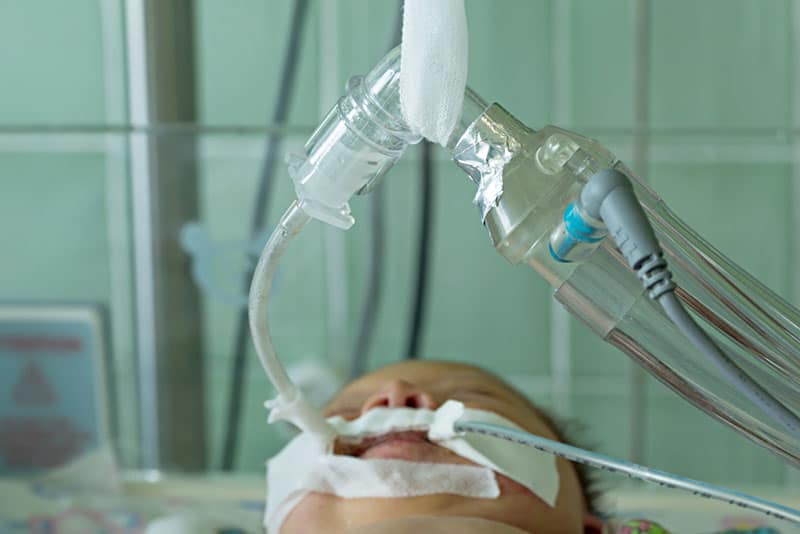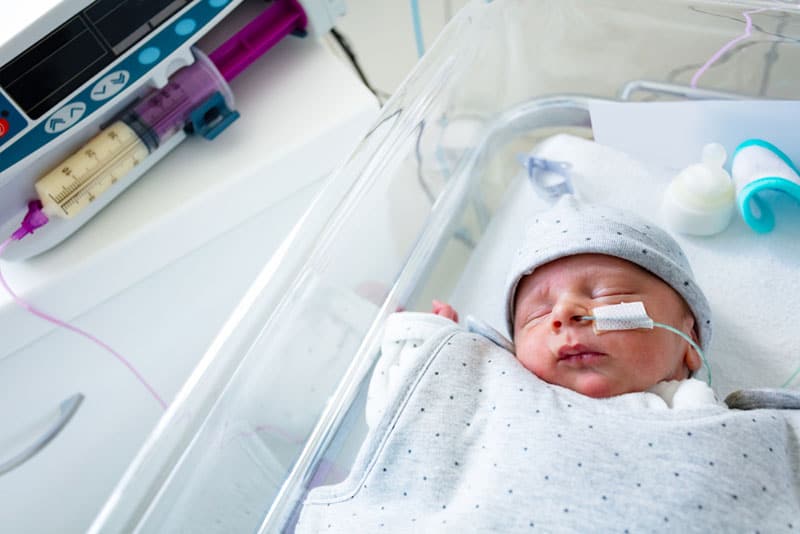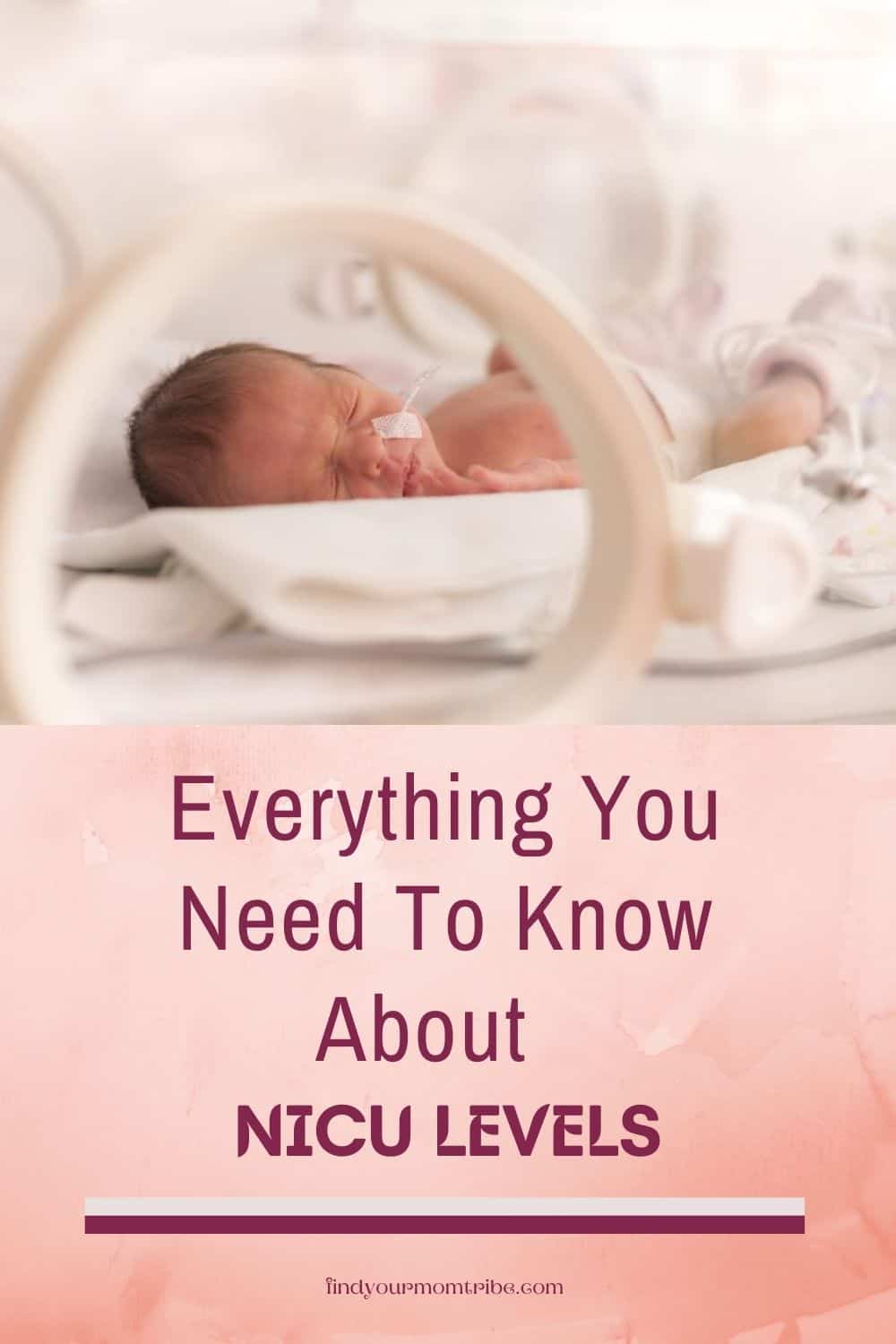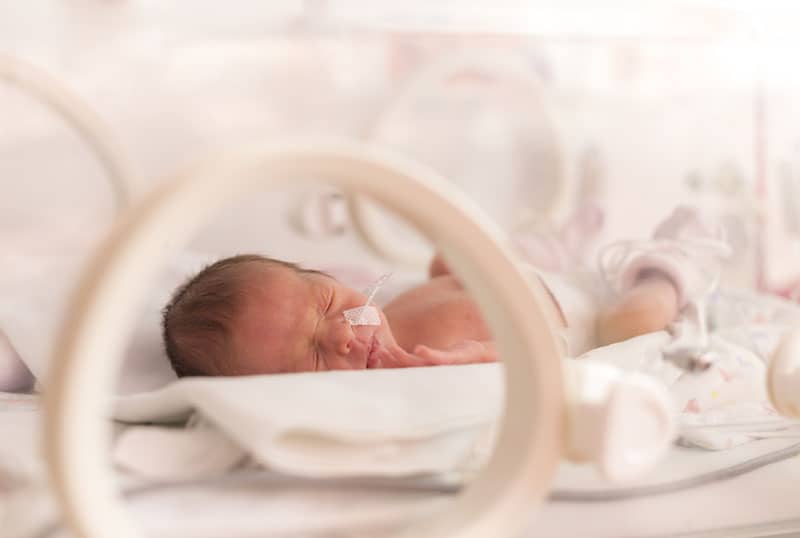Neonatal care can be very complicated, especially when we talk about NICU levels.
Many parents ask themselves, How many different neonatal levels of care are there? And what do they mean?
To answer that question briefly, there are four NICU levels or levels of neonatal care.
They range from units that care for healthy, full-term babies to preemies who need surgery to survive.
A well newborn nursery and a special care nursery are Level I and Level II, respectively.
Level I treats healthy babies and some preemies with a stable medical condition, while Level II treats babies who were born prematurely but aren’t too ill.
Levels III and IV are for babies with more severe illnesses that need round-the-clock care. Some babies who are admitted to the higher NICU levels can even have conditions that need surgery.
The medical staff taking care of newborns, especially those who are ill, is very specialized in neonatal care. As you go up the ladder, the medical team only becomes more specialized.
Read on to get the most important information you need on the different levels of care that hospitals offer to newborn babies.
RELATED: When Your Baby Is In The NICU: Why It Happens And What To Expect
Level I (Well Newborn Nursery)

Hospitals across the United States provide different levels of care to newborns and the well newborn nursery is the first out of the four levels of care.
Even healthy full-term babies who don’t have any issues with breathing or body temperature are admitted to this nursery for medical screening.
This nursery also treats premature babies who were born between 35 and 37 weeks.
Still, their medical condition should be quite stable to stay at this level.
This nursery can also provide care to preemies born before 35 weeks until they are transported to a hospital that provides higher levels of care to sick babies.
Some hospitals have both, however. In short, they are given medical care to stabilize their condition until they are transferred to a hospital or facilities appropriate to their condition.
his level of care can provide resuscitation to infants who don’t start breathing after birth, as well.
The medical team that’s part of the Level I nursery includes pediatric nurses, pediatric residents, and pediatricians.
Level II (Special Care Nursery)

The special care nursery offers more specialized levels of neonatal care.
Babies who are eligible for Level II nursery include those who previously needed a higher level of care, such as Level 3 NICU, but their medical condition has since improved.
Level II treats babies who weigh a minimum of 3.3 pounds or were delivered at 32 weeks’ gestation.
It’s also suitable for premature infants with a birth weight of less than 3.3 pounds or prior to 32 weeks’ gestation before they are admitted to a Level III NICU or higher.
Since prematurity can cause health problems like jaundice, a Level II nursery is also equipped to deal with such conditions and other physiological immaturities.
In addition, a special care nursery offers mechanical ventilation to help babies breathe, such as continuous positive airway pressure (CPAP).
In brief, Level II is appropriate for babies who do have some type of illness that still isn’t severe enough for Level III or Level IV.
The medical team that’s part of this nursery includes neonatologists, pediatric hospitalists, and specialized nurses such as neonatal nurse practitioners who can provide targeted care to newborn infants.
Level II can also be labeled as a Level IIA or IIB nursery, the difference being that IIA doesn’t offer any respiratory support to babies while IIB does.
Level III (NICU – Neonatal Intensive Care Unit)

Level III, or in other terms, the neonatal intensive care unit, offers care to babies who are in critical need of respiratory support, otherwise they will stop breathing.
Premature infants who were delivered prior to 32 weeks or with a weight below 3.3 pounds will be treated at the NICU.
Babies whose health is in a critical condition, regardless of whether they had a low birth weight or what their gestational age is, can also be admitted to a Level III nursery.
Infants who are in this unit can receive nutrition intravenously until they are able to be bottle-fed or breastfed.
In case advanced imaging is needed, facilities at this level can also provide it.
At a NICU, preemies can be treated with a full range of respiratory support. This means that even more advanced breathing assistance, such as high-frequency ventilation, is available.
It includes a health care team with a full range of pediatric medical subspecialists.
Their extensive education and training allows them to offer comprehensive care to ill newborns.
For example, this includes pediatric surgeons, pediatric anesthesiologists, neonatologists, and pediatric ophthalmologists.
A Level III nursery can usually be found at children’s hospitals.
If a doctor decides prior to delivery that the baby’s condition will require extensive hospitalization, then the mother will give birth in a hospital with higher levels of NICU if this is possible.
If not, then the baby will be transported to such facilities.
In the past, the American Academy of Pediatrics (AAP) subdivided Level III into three types.
The updated guidelines, however, replaced the third subtype with the highest level of newborn care – Level IV NICU.
Level IV (Regional NICU)

Babies who were born with high-risk conditions, birth defects, or were born very early (as early as 22 weeks) can be admitted to hospitals with a Level IV unit.
These facilities include all treatments, staff, and services that are provided at lower levels, in addition to treatments that are only available at a Level IV facility.
Their neonatology health care provider teams are very sophisticated and offer the highest level of care to preemies.
They include pediatric surgical specialists as well as all other medical staff who can provide subspecialty treatment on an urgent basis.
A Level IV nursery contains high-quality equipment for life support, such as an extracorporeal membrane oxygenation (ECMO) machine that can keep a baby alive while the doctors treat her lung or heart illness.
Regional neonatal intensive care units offer surgical repair of complex conditions such as congenital heart disease that couldn’t be performed at lower-level facilities.
They also take care of the transport of infants to their facilities.
A hospital with a Level IV NICU often also provides outreach education programs to teach medical staff about neonatal care.
How to deal when your baby is in the NICU

Having your little one hospitalized shortly after birth can be a traumatic event.
Seeing all those monitors and machines can cause a lot of anxiety, so the first step is to read up on the different devices that are being used and how they are helping your baby.
Understanding how these machines work will make your stay at the NICU more comfortable and ease your fears, and you will feel engaged in your baby’s treatment.
During your baby’s stay, talk to the medical staff about any and all questions that you may have, especially if you would like to try breastfeeding your little one.
Make sure to follow all the rules of the hospital unit as they are in place to protect your baby’s health.
And just because your baby is placed inside an incubator, does not mean that you can’t get any cuddle time.
In fact, the medical staff will encourage you to get some skin-to-skin contact with your little one so that the two of you can bond even in such difficult circumstances.
If you are pregnant right now, it’s normal to feel anxious about giving birth and whether your baby will be admitted to one of the NICU levels.
A healthy mom and pregnancy usually only requires the baby to stay at Level I, the well newborn nursery, so if you aren’t experiencing any severe health complications, there’s nothing for you to worry about.
Still, it can be helpful to talk to your doctor about the steps that would be taken if your baby is born prematurely, for example.
Ask about the hospitals in your region and which one your baby would be admitted to in case of an emergency.
Getting answers to these questions won’t hurt and you will feel better prepared in case something doesn’t go according to plan.
Reasons why your baby could need specialized care

Before you consider the different NICU levels, you should first learn about conditions that put your baby at a higher risk of needing hospitalization after birth. These include:
• carrying more than one baby;
• you already had a premature baby from a previous pregnancy;
• carrying or having given birth to a child with a serious health condition;
• you have a medical condition;
• being severely overweight or obese;
• you have previously given birth to a baby with a low birth weight (under 5 pounds 8 ounces);
• an extremely unhealthy nutrition and lifestyle in pregnancy (smoking, drinking, etc.);
• cervical weakness that causes it to open early.
To wrap up

When a baby is admitted to the neonatal intensive care unit, parents have a million questions going through their head.
That’s why learning about the different NICU levels is really important for your peace of mind.
By looking at the different treatments that are available to infants, you can take comfort in knowing that your child will be in the hands of experienced doctors and nurses who know what they are doing every step of the way.
From well newborn nurseries to hospitals with Level IV units, there are medical staff who have devoted their entire lives to helping babies and parents leave the hospitals happy and healthy.
If you are pregnant at the moment and worried that something could go wrong and cause your baby to be admitted to the hospital, remember to take your concerns up with your doctor, who should always be your first point of contact for such questions.
Even though there are always things we can’t control, keep your focus on what you can do while you’re pregnant to minimize the chances of your baby needing specialized care after birth.
References:
“Levels of Neonatal Care” written by the Committee on Fetus and Newborn, published in the Pediatrics journal in September 2012. Accessed August 19, 2020.
Like this article? Please share or pin it for later. You can also stay in the loop and follow us on Facebook, Instagram or Pinterest.

This post contains affiliate links. Please see our full disclosurefor more information.

